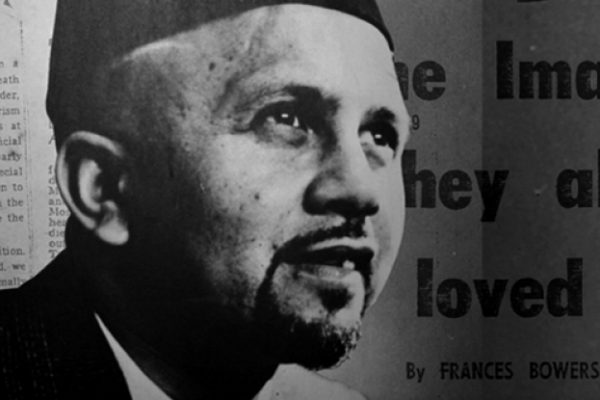Police officers have been admitting to their abuses of the system for years, and nothing has changed. Up to 40% of officers are involved in domestic abuse situations and in 2015, police officers stole from citizens more than actual thieves. Police officers have officially outdone the criminals, yet they consistently remain unchecked.
Police officers have been admitting to their abuses of the system for years, and nothing has changed. Up to 40% of officers are involved in domestic abuse situations and in 2015, police officers stole from citizens more than actual thieves. Police officers have officially outdone the criminals, yet they consistently remain unchecked.
I’d like to start this piece by recognizing the fact that I am a white-passing Muslim who has never been directly impacted by the abuses of police officers. I recognize my privilege in having never been directly targeted because of my race. This is not my movement to dictate or navigate, but I am committed to providing any form of support to those who are impacted. And with every brutal injustice, I feel the pain.
But this one feels different. And this is not just because of the surge of national outrage and solidarity. Beneath the violence and rage, there is a strong and indubitable layer of hope. I am done waiting for change, and it is clear that the majority of the American people with a conscience feel the same. For the first time in ages, people are finally listening; we are no longer screaming into the abyss.
NFL executives are admitting to being on the wrong side of history, people and businesses that have stayed silent are finally speaking out, and for the first time in decades, courts are finally considering revoking the unreasonably absurd levels of protections that police officers and law enforcement agencies have.
The numbers speak for themselves; police officers are only charged for 1% of the killings they commit. In Chicago alone, only 7% of roughly 250,000 misconduct claims have been punished, and when it comes to misconduct, the system offers police officers a gargantuan amount of protection. In most states, misconduct records are completely obscured and essentially inaccessible to the public. And even in the minority of states that provide full access to misconduct records, citizens must request them from the department’s office in a process that takes upwards of one week. Juxtapose this with citizens and the discrepancy is absurd.
90% of citizens are indicted for any killings committed even in self-defense, and online records exist for almost any form of criminal action committed by a single citizen. These numbers do not even account for race.
Law enforcement power stems from legal protections first instituted in the 1980s under the umbrella of “qualified immunity.” Qualified immunity has been used in an abundance of cases to grant officers immunity from their actions justifying force, theft, and murder. Police unions only grow stronger and offer their members more unnecessary protections.
In most states, there exists a “Law Enforcement Bill of Rights” which can include protections such as internal investigations for misconduct, extrajudicial custodial rights, and erasure of misconduct records. In 35 states officers are essentially allowed to get away with rape by having sex with anyone in their custody and claim consent without any contention. Additionally, it is virtually impossible to convict a police officer for murder.
Police officers have been admitting to their abuses of the system for years, and nothing has changed. Up to 40% of officers are involved in domestic abuse situations and in 2015, police officers stole from citizens more than actual thieves. Police officers have officially outdone the criminals, yet they consistently remain unchecked.
The key to holding officers accountable is to make their actions subject to close scrutiny and complete transparency. Being a police officer should not be an easy job; rather, it should be one that recognizes the immense responsibility and burden associated with the role, and thus, must come with the highest degree of accountability. Despite the power wrapped up into this role, many law enforcement agencies continue to function like a toxic fraternity protected by a corrupt university immune to all harm; some people join to make a difference because they care about the world and want to make it better, but in the current system it is practically impossible to be a positive influence.
The power corrupts when one can get away with anything and remains surrounded by hordes of self-serving individuals (as shown in experiments such as the Stanford Prison experiment). It’s a system that not only rewards abuse but also punishes whistleblowing. We’ve seen countless examples of this in modern times including Andrea Heath and Carol Horne. There may be people who join the force with good intentions, but the world we live in today makes it impossible to maintain those intentions with all the privileges offered to police. Cops have unlimited power – and yet we are still surprised impunity becomes the norm.
We do not say ACAB (All Cops Are Bastards) because we are convinced every individual cop is a villain; we say it because we know the current system brings out the worst. Whether or not “good cops” exist is not the question to fixate on. We live in a society that renders most police officers above the law and virtually immune to any misconduct.
But in this unique moment, and for the first time in over twenty years, police protections are being scrutinized on an institutional level. And despite this being a step in the right direction, we still have a mountain to climb. Although reforms and policy shifts are impressive, the delay of these changes is shocking and only proves that the current police system is not for the people. But this time, I am certain that the people will not stop until they will see the changes they deserve. George Floyd is not a man whose memory will be forgotten and this is not a movement that will be swept aside.





